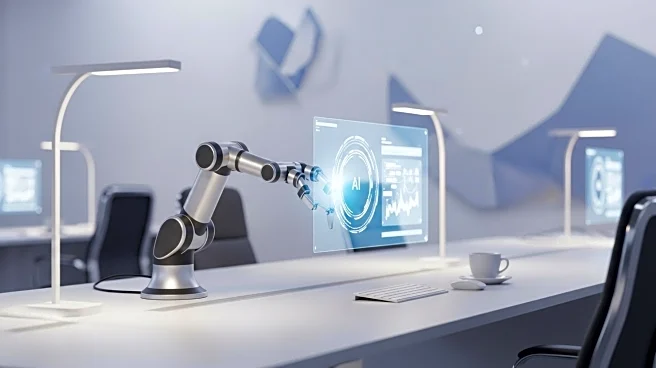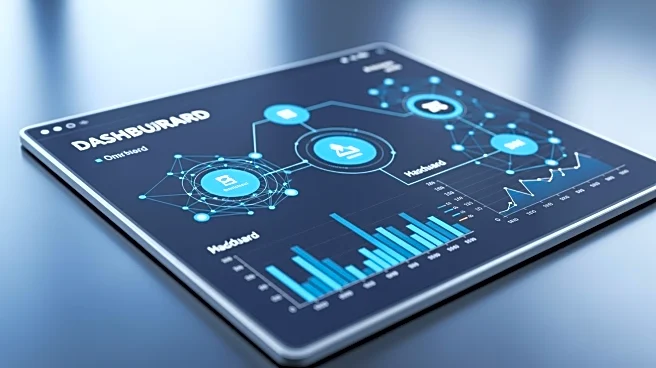What's Happening?
A mid-level employee at a Fortune 500 company is grappling with the increasing integration of artificial intelligence (AI) in the workplace. Despite the company's enthusiasm for AI, the employee remains skeptical about its unproven benefits and potential erratic behavior. The company is actively recruiting staff to evaluate AI tools and incorporate them into business processes, but the employee is hesitant to participate, fearing it may jeopardize their reputation. This situation reflects a broader trend where AI is being embraced by some as a revolutionary tool, while others remain cautious about its implications, including the risk of job displacement.
Why It's Important?
The integration of AI in workplaces is a significant development with potential implications for employment and productivity. While AI can enhance efficiency and streamline tasks, it also poses risks such as job displacement, as seen in the case of Kevin Cantera, who was replaced by AI after years of service. The skepticism surrounding AI highlights concerns about its reliability, ethical use, and environmental impact. As companies increasingly adopt AI, employees may need to adapt to new technologies to remain competitive, raising questions about the future of work and the balance between human and machine collaboration.
What's Next?
As AI continues to evolve, employees may need to familiarize themselves with its capabilities to remain relevant in their roles. Companies might need to establish guidelines for ethical AI use and ensure quality assurance in AI-generated outputs. The employee in question is considering transitioning to a smaller firm or exploring other fields to avoid the AI-centric environment. However, given the widespread adoption of AI, it is likely to become a fixture in most workplaces, necessitating a proactive approach to understanding and leveraging its benefits while mitigating its risks.
Beyond the Headlines
The rise of AI in the workplace raises ethical and cultural questions about the value of human creativity and innovation versus machine efficiency. Concerns about AI's environmental impact due to resource-intensive data centers also warrant attention. As AI becomes more prevalent, it may redefine job roles and necessitate new skills, prompting discussions about workforce training and adaptation. The balance between embracing AI and preserving human expertise will be crucial in shaping the future of work.









